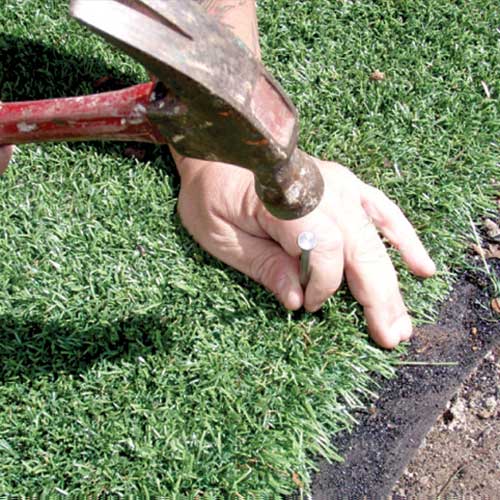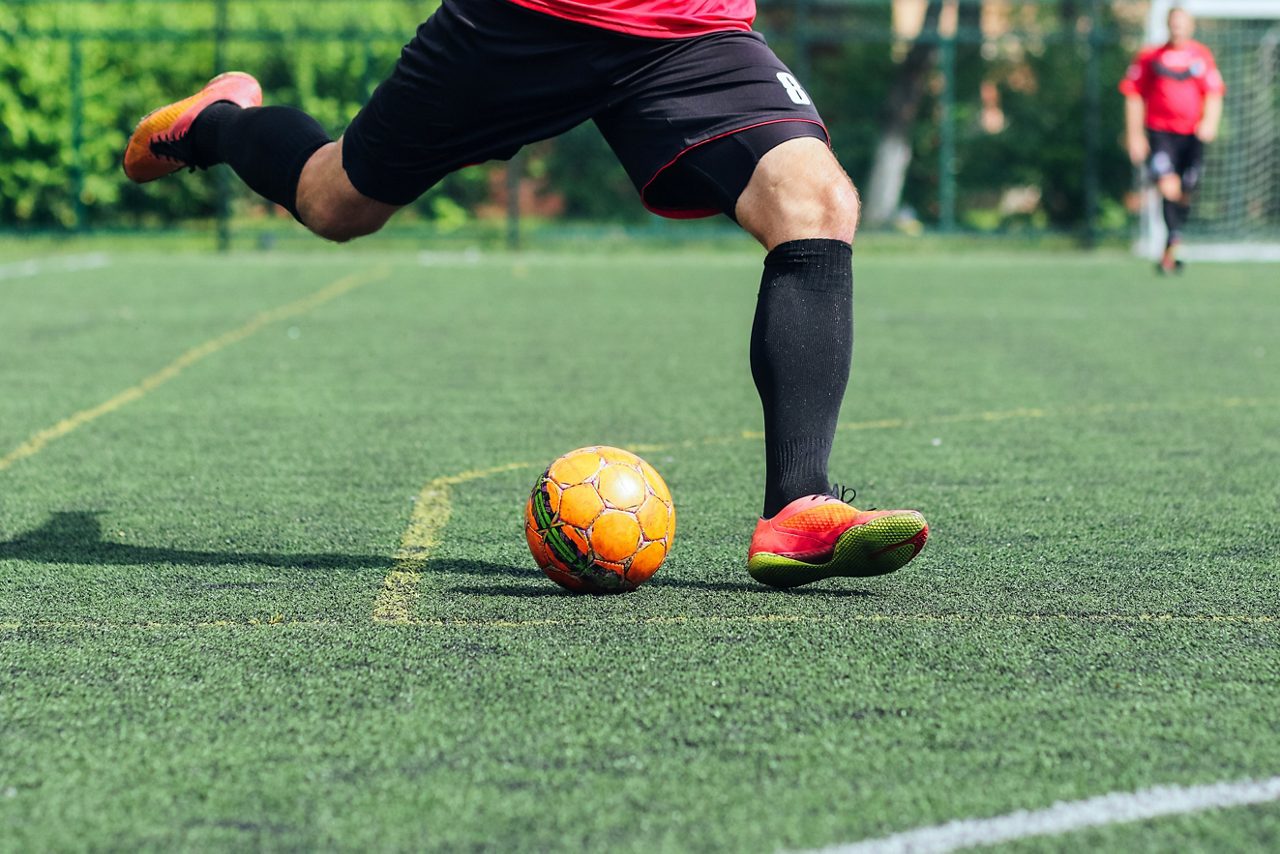Reputable Phoenix Turf Companies Offering High-End Synthetic Grass Installation
Look Into the Environmental Benefits of Opting for Artificial Turf Solutions
The adoption of fabricated turf options offers an engaging opportunity to address pushing ecological difficulties. By dramatically minimizing water usage and decreasing the application of damaging chemicals, these options not just advertise sustainable landscape design but additionally protect local environments. The reduced carbon footprint linked with lowered maintenance tasks contributes to a more sustainable technique to land administration. Nonetheless, the ramifications of these benefits extend past simple preservation initiatives, questioning regarding their lasting influence on habitat preservation and general environmental balance. Discovering these dimensions discloses a complicated interaction worth thinking about.
Water Conservation Conveniences
One of the most considerable benefits of man-made grass is its ability to conserve water. In contrast, fabricated lawn does not require watering, significantly decreasing the general need for water sources.
By removing the need for routine watering, synthetic lawn adds to lasting landscape methods and assists minimize the ecological impact of extreme water intake. The conservation of water prolongs to the decrease of overflow, which can lead to dirt erosion and river pollution.
In addition, the installment of synthetic grass enables districts and home owners to assign water resources a lot more effectively, concentrating on crucial usages such as drinking water and agriculture. The change towards synthetic turf not just advertises liable water usage but additionally lines up with more comprehensive ecological objectives intended at preserving natural deposits.
As areas significantly focus on sustainability, the water preservation benefits of synthetic grass provide a compelling case for its adoption in business and property landscape design projects.
Minimized Chemical Usage
The change to man-made lawn dramatically decreases the dependence on chemical treatments generally made use of in natural lawn upkeep. Standard lawn administration commonly entails the application of pesticides, herbicides, and fertilizers to promote growth and control parasites. These chemicals can posture threats to human wellness, neighborhood wild animals, and the atmosphere, adding to dirt and water contamination.
In contrast, man-made grass removes the demand for these damaging compounds. By lessening the release of artificial compounds into the ecological community, synthetic lawn promotes much healthier dirt and water systems.
Furthermore, the absence of chemical overflow linked with synthetic grass installments helps protect local rivers from air pollution, supporting aquatic life and keeping biodiversity. Phoenix turf companies. As areas increasingly focus on sustainable techniques, going with man-made lawn offers a viable option that aligns with environmental conservation objectives. Through this shift, building proprietors can take pleasure in lavish green areas without compromising eco-friendly health and wellness, leading the way for a more sustainable future
Lower Carbon Impact

Additionally, the setup of artificial lawn can result in substantial water preservation. All-natural lawns call for considerable quantities of water for irrigation, which not just includes to the carbon impact associated with water removal and treatment yet likewise stress local water resources. In contrast, fabricated lawn needs marginal maintenance, needing no watering, therefore substantially minimizing water usage and its associated energy prices.
In addition, the long life of man-made turf adds to its reduced carbon effect. With a life expectancy of up to 15 years or more, the requirement for constant substitutes is reduced, leading to less waste and lower power consumption in manufacturing and throwing away standard yard options. On the whole, synthetic grass offers a lasting choice for environmentally aware landscaping.
Environment Preservation
Environment preservation is a vital factor to consider in the debate over landscaping choices, especially when contrasting man-made lawn to natural turf. All-natural lawn yards usually need comprehensive maintenance, consisting of using herbicides, plant foods, and pesticides, which can detrimentally influence neighborhood communities. These chemicals can leach into the soil and waterways, damaging indigenous flora and animals and disrupting regional habitats.
In comparison, man-made turf offers a More about the author chance to decrease the eco-friendly impact of landscape design. By choosing for artificial turf, home owners can decrease the disturbance of natural habitats connected with standard yard care techniques. Man-made grass removes the demand for harmful chemicals, consequently securing neighboring wild animals and preserving the integrity of bordering environments. Moreover, the setup of synthetic grass can bring about the conversion of previous grass locations right into even more biodiverse landscapes, such as pollinator gardens or indigenous plant locations, which can sustain regional wildlife.
Inevitably, the shift to synthetic grass not only conserves water and lowers upkeep initiatives however additionally promotes a more unified connection between human activities and the all-natural atmosphere, advertising habitat conservation in the process.
Long-Term Sustainability
Long-term sustainability is an essential element in assessing the advantages of synthetic grass over typical lawn yards. One of the most significant benefits of synthetic grass is its sturdiness; it can last approximately 15-20 years with marginal upkeep, whereas all-natural lawn calls for regular reseeding and replacement. This longevity minimizes the need for consistent resources, such as water, fertilizers, and pesticides, which are crucial for preserving a healthy and balanced grass yard.
Furthermore, synthetic grass adds to a decrease in carbon exhausts associated with grass treatment equipment. Standard lawns frequently need gas-powered mowers, trimmers, and content blowers, all of which add to air contamination. Artificial turf companies phoenix. In comparison, artificial turf eliminates the demand for such devices, advertising a cleaner environment
Moreover, the production of synthetic grass significantly makes use of recycled materials, enhancing its sustainability account. As producers adopt environmentally friendly practices, the environmental footprint of synthetic grass continues to decrease.

Conclusion
The fostering of synthetic grass solutions offers considerable environmental benefits, consisting of considerable water preservation, minimized dependence on unsafe chemicals, and a lower carbon impact. Fabricated turf help in protecting natural habitats by decreasing land disruption and promoting lasting sustainability via the usage of durable materials. Collectively, these variables emphasize the capacity of synthetic grass to add positively to environmental health and wellness and use a sensible choice to conventional landscaping techniques in a progressively resource-conscious world.
In contrast, man-made lawn does not require watering, considerably lowering the total demand for water sources. By reducing the launch of synthetic substances right into the ecosystem, artificial lawn advertises much healthier dirt and water systems.
Additionally, the setup of artificial grass can result in significant water conservation. In contrast, synthetic turf requires minimal maintenance, requiring no watering, consequently substantially minimizing water usage and its connected power prices.
